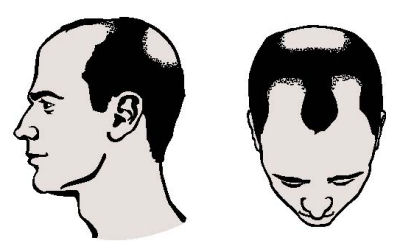
A new study, published in the Journal of Clinical Oncology, lends weight to the notion that male pattern baldness and prostate cancer may be linked.
Prostate cancer is the second most common cancer among men. Emerging evidence suggests that prostate cancer and male pattern baldness – progressive scalp hair-loss in a distinct pattern – are both connected to increased levels of male sex hormones (androgens) and androgen receptors, supporting the idea of a biological link between baldness and prostate cancer.
The study was based on an analysis of data from 39,070 men in the prostate, Lung, Colorectal and Ovarian (PLCO) Cancer Screening Trial. The results indicate that men who had moderate baldness affecting both the front and the crown of their head at age 45 were at a 40 percent increased risk of developing aggressive prostate cancer later in life. The mean age at the time of prostate cancer diagnosis was 72.

Cook believes that if the new findings are confirmed by further studies, medical assessment of baldness could possibly be used to help identify men who may be at increased risk of aggressive prostate cancer. His research team is currently conducting two additional cohort analyses exploring the relationship between male pattern baldness and risk of developing and dying from prostate cancer.
“While our data show a strong possibility for a link between the development of baldness and aggressive prostate cancer, it’s too soon to apply these findings to patient care,” he concluded.
Related:
Discuss this article in our forum
Scientists accidentally discover “astounding” hair growth compound
Cold weather and prostate cancer: what’s the connection?
Contraceptive pill to blame for rise in prostate cancer?
Compelling new evidence for prostate cancer virus


















Comments are closed.